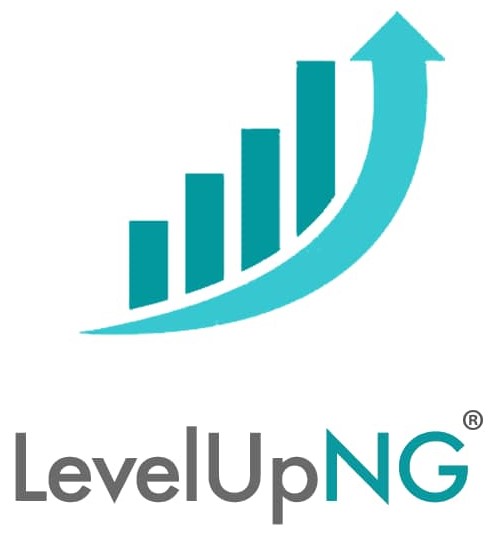
In the struggling Nigerian economy, startups are not just fighting to carve out a niche in the market; they’re also battling an invisible force that can make or break their dreams: high interest rates. As the backbone of Nigeria’s vibrant economy, startups face a unique set of challenges and opportunities in an environment where financial rates can fluctuate as much as the weather. This guide isn’t just another article; it’s a lifeline thrown to entrepreneurs who navigate these choppy waters daily.
The economic landscape in Nigeria is as dynamic as it is challenging, with interest rates serving as both a barometer and a beacon for business operations. For startups, understanding and adapting to these rates isn’t just about survival—it’s about thriving. High interest rates can be a thorn in the side, impacting everything from cash flow to the ability to innovate and expand. But like any challenge, they also present opportunities for those prepared to tackle them head-on.
This guide dives deep into the heart of how high interest rates can affect your startup operations, offering practical advice that goes beyond the basics. We’ll explore the direct impact of these rates on your daily operations, growth plans, and innovation efforts. But that’s not all—we’re also rolling up our sleeves to demystify the often intimidating world of loan interest calculations. With a step-by-step guide, you’ll learn how to navigate these calculations like a pro.
Moreover, knowledge is power, especially when it comes to choosing the right lender for your startup. We’ll provide you with a side-by-side comparison of various classes of lenders within Nigeria, focusing on their interest rates, terms, and overall suitability for startups like yours. This is not just about finding the lowest rate; it’s about understanding what works best for your unique situation.
So, whether you’re drafting your first business plan or looking to expand, this guide is tailored for you. It’s practical, up-to-date, and designed to make high interest rates less daunting and more manageable. Welcome to your survival guide for navigating high interest rates as a Nigerian startup.
The Impact of High Interest Rates on Startup Operations
For startups, high interest rates are more than just numbers on a bank statement—they’re critical factors that can significantly influence the trajectory of your startup. Understanding these impacts is crucial for navigating and mitigating potential financial headaches. Here’s how high interest rates can shape the operations of your startup:
Cash Flow Complications
High interest rates often translate into higher costs of borrowing. For startups, which typically rely on loans for capital, this means more money funneled towards interest payments and less towards operational expenses, growth, and development. It’s like running a race with weights tied to your ankles; you’re spending more energy (in this case, cash) just to maintain your pace. This scenario can lead to tight cash flows, forcing startups to make tough decisions about where to allocate limited resources.
Expansion and Growth
Dreaming big is the essence of startup culture, but high interest rates can put a damper on those dreams. When borrowing becomes more expensive, expansion projects like entering new markets, increasing capacity, or launching new products can be put on hold. This isn’t just about the present; it affects your startup’s future trajectory. Scaling becomes a mountain climb where every step forward is met with the resistance of increased borrowing costs.
The Cost of Innovation
Innovation is the heartbeat of any startup. It’s what sets you apart in a crowded market. However, innovative projects often require significant investment, and with high interest rates, securing the necessary funding can become a Herculean task. The cost of borrowing can outweigh the projected returns on innovative ventures, leading to a cautious approach where safe, low-investment projects are favoured over bold, ground-breaking ideas. This risk-averse mindset can stifle creativity and leave startups trailing behind their more daring competitors.
The Competitive Edge
The ability to stay competitive in a fast-paced market is crucial for startups. High interest rates can erode this ability by increasing the cost of doing business. This can result in higher prices for consumers, making it difficult to compete with larger enterprises that can absorb these costs more easily. Additionally, startups might need to cut costs in areas like marketing, product development, or customer service, potentially compromising quality and brand reputation.
Decision-Making Under Pressure
With the shadow of high interest looming, startup founders often find themselves making decisions under financial pressure. The focus shifts from long-term strategic growth to short-term financial survival. This shift can lead to missed opportunities and a reactive rather than proactive business strategy, hindering a startup’s ability to innovate and capitalize on new market trends.
Demystifying Loan Interest Calculations for Startups
For many startup founders, the realm of finance and interest calculations can seem like a maze of numbers and terms. However, having a solid grasp on how to calculate the interest on loans is crucial. It not only helps in planning and budgeting but also enables you to select the most cost-effective financing options. Let’s break down the basics and provide a step-by-step guide to navigate this financial landscape.
Understanding the Basics
Before diving into calculations, it’s essential to understand the types of interest rates commonly encountered: Simple Interest is calculated on the principal amount of the loan, meaning the interest doesn’t accumulate on top of previously accrued interest.
Compound Interest, on the other hand, is calculated on the principal amount and also on the accumulated interest of previous periods. This is more common in the financial world and can significantly impact the total amount you end up paying back.
Calculating Simple Interest
The formula for simple interest is straightforward: Interest=Principal×Rate×TimeInterest=Principal×Rate×Time
- Principal is the original loan amount.
- Rate is the interest rate per period (usually annually), expressed as a decimal.
- Time is the length of time that the interest is applied, typically in years.
For example, if a startup borrows NGN 1,000,000 at an annual interest rate of 10% for 3 years, the interest would be: Interest=1,000,000×0.10×3=NGN300,000Interest=1,000,000×0.10×3= NGN300,000
Calculating Compound Interest
Compound interest calculations are a bit more complex. The formula is: A=P(1+rn)ntA=P(1+nr)nt
- A is the amount of money accumulated after n years, including interest.
- P is the principal amount.
- r is the annual interest rate (decimal).
- n is the number of times that interest is compounded per year.
- t is the time the money is invested or borrowed for, in years.
Using the same example but with interest compounded annually, the calculation for the total amount after 3 years would be:
- A=1,000,000(1+0.101)1×3A=1,000,000(1+10.10)1×3
- A=1,000,000(1+0.10)3A=1,000,000(1+0.10)3
- A=1,000,000(1.331)=NGN1,331,000A=1,000,000(1.331)=NGN1,331,000
The interest paid over the 3 years would be NGN 331,000, illustrating how compound interest increases the cost of borrowing.
Now that we’ve covered how to calculate both simple and compound interest, let’s apply this knowledge. When evaluating loan options, it’s vital to:
- Understand the Type of Interest: Knowing whether a loan uses simple or compound interest can significantly affect the total amount you’ll need to repay.
- Calculate Total Repayment: Use the formulas to determine the total repayment amount for any loan you’re considering. This will help you compare options effectively.
- Consider the Compounding Period: For compound interest, the frequency of compounding can dramatically affect the total interest paid. Generally, the more frequently interest is compounded, the more you’ll owe.
Comparing Lender Options in Nigeria
Choosing the right lender is a crucial decision for any startup. It’s not just about who offers the lowest interest rate; it’s about finding a partner that aligns with your startup’s needs, growth phase, and repayment capabilities. Below, we explore the primary lending options in Nigeria, offering insights to help you make an informed decision.
Traditional Banks
Pros:
- Reliability and Trust: Well-established banks offer a sense of security and have a long history of lending.
- Range of Products: They provide a wide array of loan products and services beyond just lending, which can be beneficial as your startup grows.
Cons:
- Strict Requirements: High collateral requirements and stringent credit assessments can be barriers for many startups.
- Higher Interest Rates: Often, traditional banks have higher interest rates compared to alternative lenders.
Microfinance Institutions (MFIs)
Pros:
- Accessibility: MFIs are more accessible to startups and small businesses, often requiring less collateral than traditional banks.
- Community Focus: They tend to have a strong understanding of the local market and are geared towards supporting community businesses.
Cons:
- Variable Interest Rates: Interest rates can be high and vary widely among institutions.
- Smaller Loan Sizes: Typically, MFIs offer smaller loan sizes, which might not be suitable for all financing needs.
Fintech Companies
Pros:
- Innovative Solutions: Fintechs often provide innovative lending solutions, utilizing technology for quicker loan processing and approval times.
- Flexible Terms: They tend to offer more flexible repayment terms and lower interest rates, catering specifically to the needs of startups and SMEs.
Cons:
- Limited Regulation: The fintech lending space can be less regulated, which might pose risks in terms of stability and reliability.
- Loan Amount Limitations: Some fintech lenders might not be able to offer the large loan amounts that traditional banks can.
- Higher Interest rates and unfavourable loan conditions
Side-by-Side Comparison
To give you a clearer picture, let’s compare a few lenders across these categories. Note that interest rates and terms can vary, so it’s essential to conduct current research:
Institution Type | Name | Loan Amount | Interest Rate | Loan Term |
| Traditional Banks | Zenith Bank Plc | ₦5 Million – ₦500 Million | 15% – 25% | 12 months – 3 years |
| Guaranty Trust Bank Plc (GTBank) | ₦10 Million – ₦1 Billion | 18% – 22% | 6 months – 5 years | |
| Access Bank Plc | ₦2 Million – ₦250 Million | 17% – 23% | 1 year – 4 years | |
| First Bank of Nigeria | ₦5 Million – ₦2 Billion | 16% – 24% | 1 year – 5 years | |
| United Bank for Africa (UBA) Plc | ₦1 Million – ₦300 Million | 18% – 26% | 6 months – 3 years | |
| Microfinance Companies | LAPO Microfinance Bank Limited | ₦100,000 – ₦5 Million | 25% – 35% | 6 months – 2 years |
| NSL Microfinance Bank Plc | ₦500,000 – ₦10 Million | 22% – 32% | 1 year – 3 years | |
| Nigeria For Loans (NFL) Microfinance Bank Plc | ₦200,000 – ₦3 Million | 28% – 38% | | 6 months – 18 months | |
| Accion Microfinance Bank Plc | ₦250,000 – ₦7 Million | 23% – 33% | 1 year – 2 years | |
| Kuda Bank Microfinance Bank | ₦500,000 – ₦5 Million | 20% – 30% | 6 months – 3 years | |
| Fintech Companies | Payhippo | ₦500,000 – ₦100 Million | 12% – 20% | 6 months – 2 years |
| Carbon (formerly PayLater) | ₦50,000 – ₦1 Million | 15% – 30% | 1 month – 12 months | |
| AltVest | ₦5 Million – ₦50 Million | Varies based on creditworthiness | 6 months – 3 years | |
| FairMoney | ₦100,000 – ₦5 Million | 18% – 28% | 6 months – 2 years | |
| KiaKia (formerly SME.ng) | ₦500,000 – ₦20 Million | 15% – 25% | 6 months – 3 years |
Mitigating the Impact of High-Interest Rates
For startups in Nigeria, navigating the landscape of high interest rates requires a blend of savvy financial management, strategic planning, and sometimes, thinking outside the traditional loan box. Here are some strategies to help mitigate the effects of high interest rates on your startup:
Financial Planning and Management
- Tighten Your Budget: Scrutinize your budget for areas to cut costs without sacrificing the quality of your product or service. This might mean renegotiating supplier contracts or finding more cost-effective operational methods.
- Improve Cash Flow Management: Enhance your invoicing and collections processes to ensure that cash comes in on time. An efficient cash flow can provide a buffer against the need for high-interest borrowing.
- Refinance Existing Debt: If possible, refinance any existing high-interest loans to take advantage of lower rates or more favourable terms. This can significantly reduce your interest payments over time.
Exploring Alternative Financing
- Equity Financing: Instead of taking on debt, consider equity financing by selling a stake in your startup. This can provide the necessary capital without the pressure of interest rates, though it does mean sharing ownership.
- Grants and Subsidies: Look for government grants, subsidies, or competitions designed to support startups. These funding sources do not require repayment and can provide a solid foundation for growth.
- Crowdfunding: Platforms like Kickstarter or Indiegogo offer a way to raise funds directly from customers or supporters. This method not only provides financing but also validates your product in the market.
Negotiating Better Rates
- Build a Strong Credit Profile: Maintain a positive credit history by paying bills on time and managing debt responsibly. A strong credit profile can give you leverage to negotiate lower interest rates.
- Shop Around: Don’t settle for the first loan offer you receive. Compare rates from multiple lenders to ensure you’re getting the best deal possible.
- Negotiate Terms: Be proactive in negotiating loan terms. Lenders may be willing to offer better rates or more favorable terms to secure your business, especially if you have a strong financial record or promising business prospects.
Conclusion
Dealing with high interest rates in Nigeria demands resilience, adaptability, and a proactive financial strategy. Throughout this guide, we’ve explored the multifaceted impact that high interest rates can have on startup operations, from cash flow complications to the stifling of innovation and growth. Yet, with challenge comes opportunity—the chance to rethink, refine, and reinforce the financial foundations of your startup.
We’ve demystified the daunting world of loan interest calculations, providing you with the tools to make informed decisions about borrowing. By understanding how to calculate both simple and compound interest, you’re now equipped to scrutinize loan offers more critically, ensuring that you choose options that align with your startup’s financial health and growth trajectory.
Our comparative analysis of lender options illuminated the diverse landscape of financial partners available to you, from traditional banks to innovative fintech companies. This knowledge empowers you to select a lender not just based on interest rates, but on a holistic view of what they offer in terms of flexibility, understanding of the startup ecosystem, and alignment with your business goals.
Mitigating the impact of high interest rates is not a one-size-fits-all formula. It requires a blend of tight financial management, exploration of alternative financing routes, and the courage to negotiate better terms. Each strategy we discussed offers a stepping stone towards financial sustainability and growth, even in the face of economic challenges.
Remember, high interest rates are just one part of the complex financial realities as a startup owner in Nigeria. They present hurdles, certainly, but with the right approach, they can also offer valuable lessons in financial stewardship, resilience, and innovation.
As you move forward, let this guide serve as a reminder that with knowledge, planning, and a dash of creativity, you can turn the challenge of high interest rates into an opportunity for growth and success. Your startup’s journey is unique, and each challenge you overcome adds to your story of resilience and determination.
We encourage you to share your experiences, tips, or questions in the comments below. Your insight could light the way for fellow entrepreneurs, fostering a community of knowledge-sharing and support in the Nigerian startup ecosystem.

